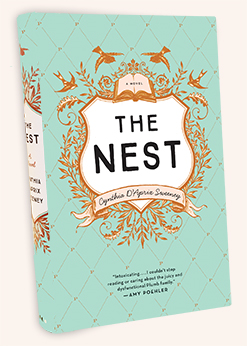Mark Twain famously said, “A classic is something everybody wants to have read, but no one wants to read.” Life insurance is a little like that. Everyone needs it, but we don’t like to talk about it much.
Life Insurance as Key Estate Planning Tool
Life insurance is an amazing estate planning tool. I cannot stress enough the importance of life insurance. I, of course, don’t sell it, so I have no economic stake here. It’s just that life insurance is generally reasonably and affordably priced, yet still so helpful with so many financial goals. Replacing a breadwinner’s earnings is one of the most commons ways it is utilized. But, it can also provide liquid assets for a small business when a key partner dies. Life insurance can also cover costs that you might forget about, like funeral costs or unpaid taxes. While there are many advantages to life insurance, and you most definitely need it, life insurance can also create estate planning issues.
Three Estate Planning Issues Life Insurance May Create
The major issue created by life insurance is that of the “sudden windfall” to your beneficiary. Do you really want, say, your 19-year-old to inherit several hundred thousand dollars at once? Even oldsters with experience managing finances may find a huge influx of cash to be overwhelming.
Another issue to consider: does your beneficiary receive government benefits? If so, proceeds from your life insurance policy might make your beneficiary ineligible for further benefits. By the way, don’t think that those receiving government aid are all elderly. Quite the opposite! A vast majority of Medicaid recipients are under age 44. Regardless of age, any beneficiary on Medicaid, or similar government aid program, is at risk of losing benefits without careful estate planning.
Finally, for high-net-worth (HNW) individuals and families, there is the issue of the federal estate tax. Everything owned in your name at death is included in your estate for estate tax purposes. Yes, that includes the death benefit proceeds of your life insurance policy. Considering that many policies carry quite hefty death benefits (several hundred thousand dollars, or more, not being unusual), this is definitely something for those with HNW to carefully consider.
In Trusts we Trust
I’ve explained trusts generally before. A quick primer: in simplest terms, a trust is a legal agreement between three parties: grantor, trustee, and beneficiary. This allows a third party (the trustee) to hold assets for a beneficiary (or beneficiaries).
There are a nearly infinite variety of trusts. One type of trust is an irrevocable life insurance trust or ILIT.
So, what IS an Irrevocable Life Insurance Trust?
Think of an ILIT as an “imaginary container,” which owns your life insurance policy for you. This provides several benefits. An ILIT removes the life insurance from your estate, i.e., lowers estate tax liability. Like other trusts, an ILIT allows you to decide how, when, and even why your named beneficiary receives life insurance proceeds.
Wait, what was that about the three parties?
The grantor is you, the purchaser of life insurance.
The trustee can be anyone you, as grantor, chooses — an individual(s) or a qualified corporate trustee (like the trust department at your bank). But, note a major difference between an ILIT and other kinds of trusts – with a large number of other trusts, you can name yourself as trustee. With an ILIT, you wouldn’t want to do so, because the IRS may then determine that life insurance really hasn’t left your estate.
Who can be a beneficiary of an ILIT?
Most often, spouses, children, and/or grandchildren are the named beneficiaries of an ILIT. But really, it can be any individual(s) you, as grantor, choose.
Your beneficiary and your life insurance proceeds
The conditions under which a beneficiary receives distributions from an ILIT is up to you. You can, for example, specify that your beneficiary receives monthly or annual distributions. You can decide the amounts. You may even dictate that your beneficiary receives distributions when s/he reaches milestones which you choose. For example, you can provide for a large(r) distribution when a beneficiary reaches a certain age, graduates from college or post-graduate program, buys a first home, marries, or has a child. Or, really, just about any other condition or event that you decide is appropriate.
You also have the option to build in flexibility, so that your trustee has the discretion to provide distributions when your beneficiary needs it for a special purpose, like pursuing higher education, starting a business, making an investment, and so on.
And, of course, if your beneficiary is receiving government benefits, an ILIT can account for that, as well.
Good gosh, is there anything an ILIT CAN’T DO?
Once again, an ILIT is irrevocable. While an ILIT provides a great deal of flexibility, there’s one action for certain you can’t take — you cannot transfer a policy owned by an ILIT into your own name. So, if you think that someday you may need to access the policy’s cash value for your own purposes, you probably shouldn’t set up an ILIT.
Options for “ending” an ILIT
Now, I suppose, there’s nothing requiring you to continue making insurance payments into your ILIT. Depending on the kind of policy you have, your policy may lapse as soon as you miss your premium payment. Or, if your policy has cash value, these funds may be used to pay premiums until all the accumulated cash is exhausted. So, that’s an option for “ending” an ILIT.
I bet you have some questions. Let’s talk!
An ILIT can provide you, your loved ones, and your estate with significant benefits. To learn more, contact me at my email, gordon@gordonfischerlawfirm.com, for a free consultation, without obligation. You can also give me a call at 515-371-6077.
*Yes, you’re right – ILIT is really not a word, but an acronym. You caught me. It’s just that Legal Word of the Day sounds more exciting than Legal Acronym of the Day. Also, congratulations to you for being the kind of person who reads footnotes.
**In 2019 an individual must have an estate of more than about $11.18 million, and a married couple an estate of more than $22.8 million, before they need to worry about federal estate taxes.




















